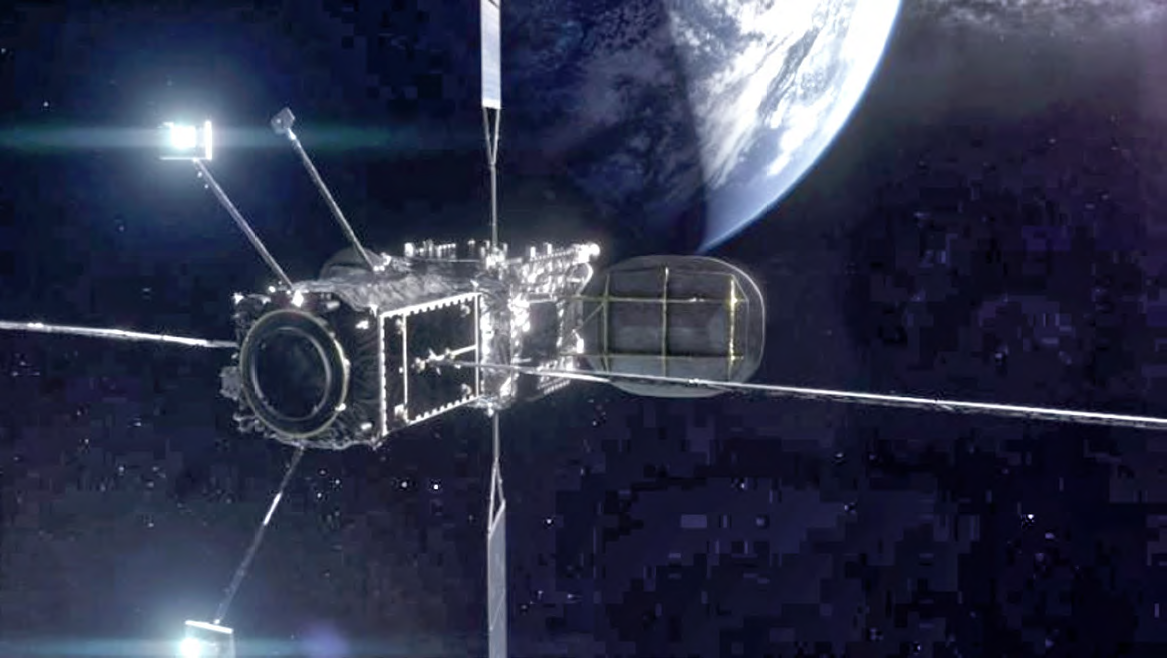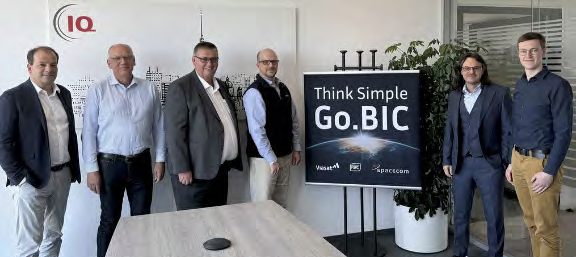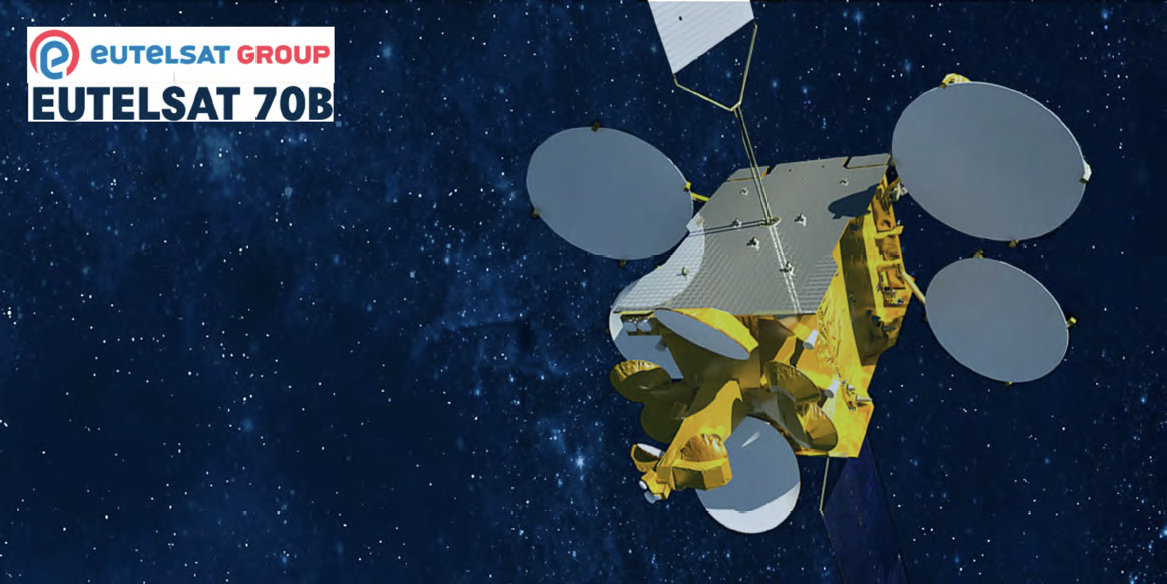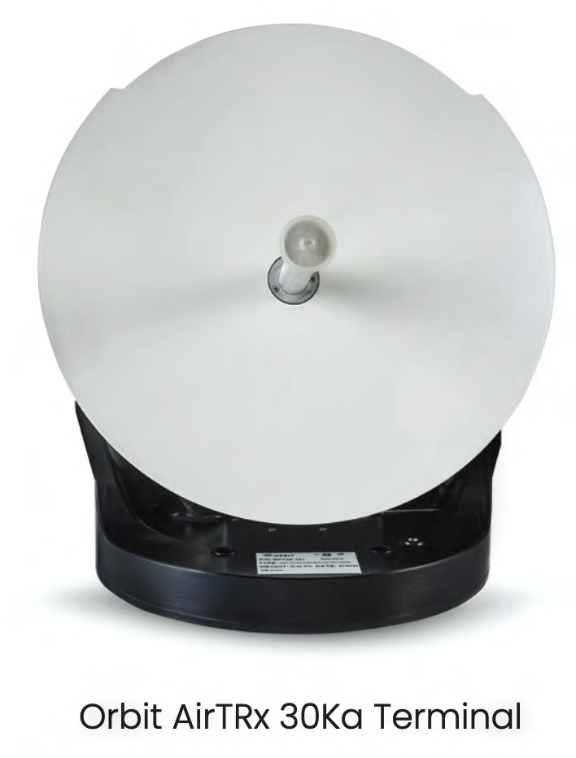Northrop Grumman expands satellite life-extension services
Northrop Grumman Corporation’s (NYSE: NOC) SpaceLogistics LLC announced its agreement to extend, by four years, the on-orbit life- extension services the firm’s Mission Extension Vehicles (MEVs) provide to satellite operator, Intelsat.

At the end of the current servicing period, MEV-1 will relocate and release the Intelsat 901 (IS-901) satellite into the GEO graveyard and provide service for another Intelsat satellite. MEV-2 will remain docked to Intelsat’s current vehicle, Intelsat 10-02 (IS-10-02), providing life-extension for an additional four years, nearly doubling service from the original contract.
Northrop Grumman remains committed to its legacy of space sustainability beginning when MEV-1 performed the first-ever in-orbit commercial spacecraft docking with IS-901.
In 2021, the company achieved another milestone when MEV-2 docked with IS- 10-02 while the satellite was in operation, with no reported disruption in service during the docking.
The initial service period was for five years for both MEVs. With these new contract amendments, the lifespans of several commercial GEO satellites will be extended for an additional four years.
Northrop Grumman is the only provider of life-extension services for satellites in GEO. The MEVs extend the life of legacy satellites, allowing them to operate longer and generate more revenue.
Rob Hauge, president, SpaceLogistics, said, “As technology pioneers for the in-space servicing industry, our two MEVs have provided a combined seven years of life extension to increase our customer’s satellite lifetime and support our joint commitment to making space sustainable.”
IQ spacecom + RBC Signals collaborate on Go.BIC
IQ spacecom and RBC Signals have joined forces to deliver Go.BIC, the first, dynamic, Global On-Demand, Bi-directional Intersatellite Connection Service, aimed at supporting inter-satellite connections for LEO operators — connectivity for the service will be powered by Viasat’s global, L-band satellite network.

RBC Signals, a pioneering provider of satellite data communication solutions with a vast ground station network, is partnering with IQ spacecom, a product branch of the German IQ Technologies for Earth and Space GmbH, known for its more than 15 years of experience in broadband data communication for small satellites.
Together, the companies have launched Go.BIC, a highly flexible service set to support inter-satellite connections for LEO satellites.
Go.BIC will use dynamic, on-demand capacity from Viasat’s global L-band network of GEO satellites. This first of a kind service ensures real-time allocation of L-band capacity on a global scale, specifically tailored to meet the needs of LEO operators.
The service complements existing ground station networks to extend coverage to previously unconnected regions like remote oceans, bridging communication gaps for satellite operators worldwide and making their satellites reachable at any point of time. This enhances operational efficiency and offers cost-effective telemetry and telecommand options, empowering LEO satellite operators with improved flexibility and control over their missions.
Designed to cater to time-sensitive space applications, Go.BIC facilitates on- demand communication with LEO satellites without waiting for ground station passes. Serving scientific missions, university projects, satellite manufacturers and operators, Go.BIC can facilitate a variety of use cases including satellite tasking (TM/TC), scheduled data transmission, natural disaster monitoring, real- time satellite maneuvering, and backup communications.

Picture L-R: Dr. Wolfgang Weber (Business Development Manager, IQ Technologies), Mathias Reibe (CTO/Head of Engineering, IQ Technologies),
Dr. Kurt Winter (CEO, IQ Technologies), Christopher Richins (Founder &
Chief Strategy Officer, RBC Signals), Dr. Vassilis Tsiafakis (MD, RBC
Signals UK) and Lukas Felderhoff (Sales Engineer, IQ Technologies)
Go.BIC is powered by IQ spacecom’s XLink-L SDR platform and its L-band patch antennas onboard the LEO satellite, combined with RBC Signals’ ground station infrastructure and Spectrum Trading Orchestration and Resource Management (STORM) platform.
In January, IQ spacecom, RBC Signals and Viasat successfully completed Over-the-Air tests: a pivotal milestone in validating the robustness and reliability of this solution. This lays the foundation for widespread adoption and deployment.
The next phase includes an In-Orbit Demonstration mission with the XLink-L platform that is slated for later in 2024.
Dr. Kurt Winter, CEO of IQ Technologies, said, “We firmly believe that this solution represents a significant step forward in advancing satellite communication capabilities and will meet the evolving demands of the global market.”
Ron Faith, CEO of RBC Signals, said, “This collaboration represents a milestone in small satellite communications. By combining both our industry expertise with Viasat’s L-band network, we will significantly enhance the capabilities of the industry.”
Andy Kessler, Vice President, Viasat Enterprise and Land Mobile, said “Our connectivity can help operators work more safely, sustainably, efficiently, and with assured security. It’s exciting to see innovative partners like IQ spacecom and RBC Signals bringing that reliable connectivity to every domain — including, now, Low Earth Orbit.”
Additional information at this direct link...
Eutelsat Ku-band capacity selected by InterSAT for Pan-African satellite services
Eutelsat Group (ISIN: FR0010221234 - Euronext Paris / London Stock Exchange: ETL) has extended their partnership with InterSAT, one of Africa’s leading, satellite service providers, to support InterSAT’s growth in the Pan-African enterprise and retail segments.

Under the latest multi-year strategic deal, InterSAT will add Ku-band capacity over Central and Eastern Africa on Eutelsat’s EUTELSAT 70B satellite to its current portfolio that already includes Ka-band capacity on the EUTELSAT KONNECT satellite.
Located at the 70.5° East orbital position, EUTELSAT 70B offers a broad wide beam coverage and four high-performance fixed beams, with a high degree of on-board connectivity.
Hanif Kassam, Chief Executive Officer of InterSAT, said, ‘We are delighted to be able to rely on Eutelsat capacity once again to support our growth ambitions in Africa, home to some of the world’s most remote and underdeveloped regions which represent a challenging environment for building terrestrial communication networks. Leveraging our VSAT service expertise and our teleport infrastructure, we are able to use satellite communication to deliver reliable and cost-effective connectivity to remote and underserved areas while assuring a high-end user experience for our customers.”
Ghassan Murat, Eutelsat’s RVP of the AMEA region, said, “We are honored to be selected by our long-standing partner, InterSAT, to accompany the further roll-out of its services in Africa. The growth of VSAT services in Africa is a testament to the potential of this technology to transform the continent’s ICT landscape, connecting more people and businesses than ever before, as well as the ongoing relevance of our powerful geostationary in-orbit assets to deliver a compelling and reliable connectivity service to the remotest areas.”
Revolv Space secures million€ to boost smallsat performance
Revolv Space, a space tech startup based in Italy and the Netherlands, has raised an investment of €2.6 million to revolutionize small satellite capabilities through high-performance mechanisms and power systems.

The investment round, led by Primo Ventures through Primo Space Fund and joined by Takeof f Accelerator, will significantly accelerate the company’s growth trajectory and will will enable the upcoming In-Orbit
Demonstration of Revolv Space’s flagship product, SARA, the world’s first autonomous and fail-safe Solar Array Drive Assembly that increases the performance of small satellites.
Additionally, this capital infusion will also facilitate the scaling of production capabilities, directly addressing the surging industry demand for high- performance satellite components.
Revolv Space is led by a highly skilled and truly international team, currently counting 15 people of 10 different nationalities. The company sees rising demand from satellite integrators for high-performance equipment, currently provided only by large contractors.
The startup is backed by the European Space Agency (ESA) through its Business Incubation Centre in Noordwijk, the Netherlands – also supported by the Netherlands Space Office – where the company has been making great strides in close proximity to ESTEC (the European Space Research and Technology Centre).
The fresh funding round has fueled the establishment of a new location for the company in Turin, Italy – an emerging hub in the space sector, home to industry giants such as Thales Alenia Space and Leonardo, as well as rapidly expanding firms, such as Argotec and Tyvak International.
“This investment propels Revolv into its next pivotal phase: the first SARA unit operating in space, following an extensive testing campaign that validates both our product’s reliability and our development philosophy,” said Marco Sala, CEO and Co-founder at Revolv Space. “This funding infusion will also enable us to enhance our production capabilities to serve constellation customers, marking a vital first step in our mission to push the boundaries of commercial space with innovative robotics and energy solutions. The support of renowned investors like Primo Space Fund and Takeoff reaffirms our vision and expansion plans. Their expertise in financial management, combined with their extensive network in the space industry, plays a critical role in driving Revolv’s growth. We extend our heartfelt thanks to our mentors, advisors, and earlier investors, including Graduate Entrepreneur, who were instrumental throughout the investment process. Special appreciation goes to our legal counsel, Silvia Bernardi, M&A lawyer at Gianni & Origoni, and our investment advisors, Alberto Emprin and Alessandro Rovera, for their invaluable guidance and support.”
“Small satellite manufacturers and end users are looking for leaner suppliers who can comply with the budget and schedule of small satellite missions without compromising on quality: this means affordable components delivered with excellent quality and low lead times,” said Filippo Oggionni, who leads the commercial efforts of Revolv Space. “We place clients at the heart of our product development, integrating their feedback from the early stages. Today’s satellite integrators are tired of black-box suppliers; instead, we bet on a transparent and responsive communication approach, which has already paid off with our existing customers.”
“Founded in 2022 by PoliMi and TU Delft alumni, their commercial traction, rapid growth, and strategic vision perfectly align with Primo Ventures’ investment philosophy,” said Raffaele Mauro, Partner at Primo Space Fund.
Eugenia Forte, Director of Takeoff Accelerator, said, “We are thrilled to support Revolv Space at this pivotal stage of their growth. The team’s innovative approach to the development and commercialization of space technology represents a significant breakthrough in the space sector.
This investment will enable Revolv to accelerate the development and production of cutting-edge systems, meeting the demands of a rapidly expanding market. We are proud to collaborate with such a dynamic and visionary team that has the potential to redefine industry standards in satellite technology.”
Orbit’s successful trial of the AirTRx30 aviation terminal
Orbit Communications Systems Ltd. has announced the company’s successful demonstration of the Orbit AirTRx30 business aviation terminal over Viasat’s Global Xpress satellites.

A series of recent tests have validated the next generation system’s remarkable ability to provide reliable and consistent high-speed connectivity, which highlights its ability to deliver a transformative onboard experience in the business aviation sector.
The AirTRx30 distinguishes itself with a compact design of two-line replaceable units, boasting a 12-inch antenna that weighs less than 22 pounds, and features the lowest power consumption in its class.
Its parabolic shape design ensures optimal performance without compromise across all elevation angels down to the horizon as well as dual polarization capability to support the next generation of Viasat’s GX satellites.
The AirTRx30’s MODMAN provides full installation flexibility as it supports both pressurized and unpressurized vessels, making it the ideal solution for business aviation, where space and efficiency are vital.
Daniel Eschar, CEO of Orbit, said, “We are committed to providing the highest quality of in-flight connectivity to business aviation customers. Working in close partnership with Viasat, our AirTRx30 system delivers next-generation capabilities for data-intensive activities such as video streaming, live TV, conference calls, large file transfers, and countless other business applications. The results from our recent over-the-air tests have exceeded expectations and mark an important milestone terminal entering commercial service later this year.”
AJet selects TCI in partnership with Turksat + Hughes for IFC
Hughes, an EchoStar Company (Nasdaq: SATS), has announced that AJet selected the TCI Integrated In-Flight Connectivity (IFC) solution.

Turksat provides satellite connectivity and Hughes provides equipment and advanced IFC Management capabilities.
The solution brings a high-value service offering to AJet, powering passenger Wi-Fi service fleetwide to more than 120 aircraft.
AJet is the latest airline that has turned to Hughes to elevate IFC service for passengers. In November 2023, Delta Air Lines selected Hughes to power passenger Wi-Fi service on more than 400 Boeing 717 and regional



